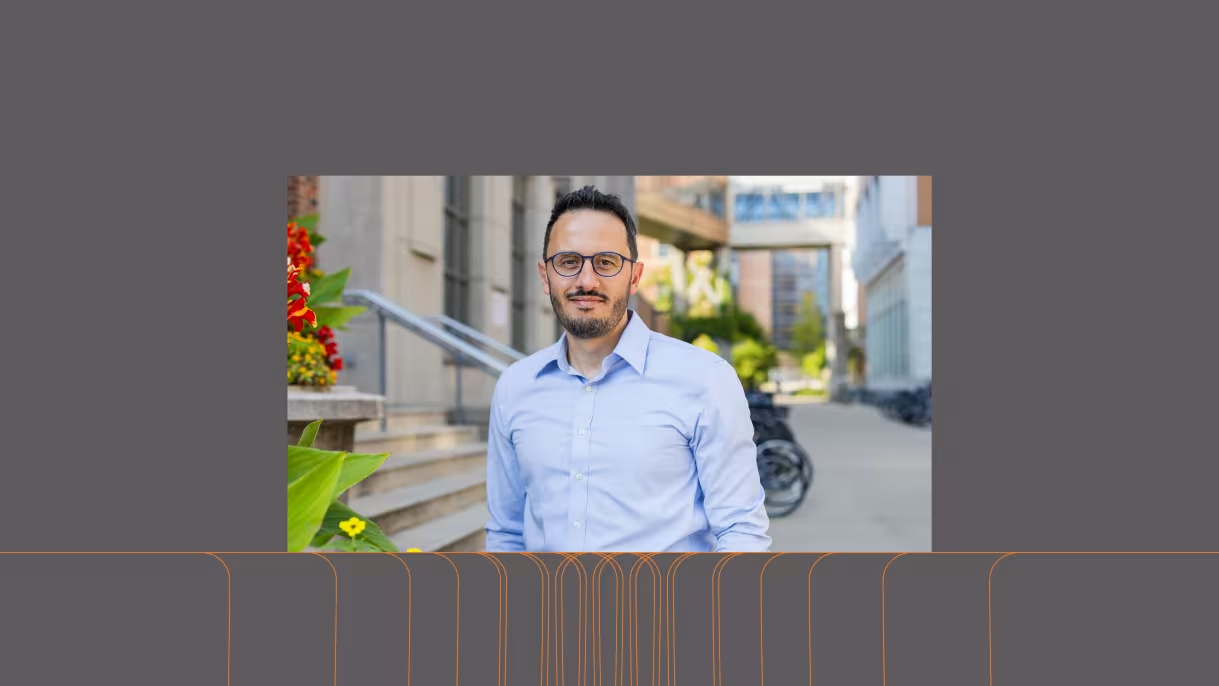

Sébastien Philippe *18 Wins MacArthur ‘Genius’ Grant
Sébastien Philippe, a visiting researcher at the Princeton School of Public and International Affairs’ Program on Science & Global Security (SGS), has been awarded a 2025 MacArthur Fellowship.
Philippe’s achievement puts him among 20 scientists, artists, and scholars across the country who will receive an unrestricted $800,000 stipend from the John D. and Catherine T. MacArthur Foundation. The fellowship, known informally as MacArthur “genius” grants, recognizes people who have demonstrated “exceptional originality in and dedication to their creative pursuits.”
The MacArthur Foundation’s award citation describes Philippe as “a nuclear security specialist exposing past harms and potential future risks from building, testing, and storing launch-ready nuclear weapons.”
"It’s an incredible honor to be named a MacArthur Fellow,” Philippe said. “My work has been shaped by scientists committed to ending the nuclear arms race. Receiving this award — amid renewed growth in global nuclear arsenals — is particularly meaningful and underscores the need to support the kind of interdisciplinary, rigorous policy interventions that are the signature of Princeton SPIA’s Program on Science and Global Security. I’m grateful for the support this fellowship provides and am eager to help cultivate the next generation of scientists and scholars who will help end this new arms race."
Nuclear weapons testing is linked to dozens of illnesses, including thyroid cancer and leukemia. The foundation cited Philippe’s partnership with investigative journalists in the book Toxique and the digital archive The Moruroa Files as pivotal documentation showing the impact of France’s tests in French Polynesia. A subsequent project studying mid-century atmospheric tests in New Mexico and Nevada “revealed broader exposure than official records indicated,” the fellowship announcement noted.
“We live in a world with — still! — over 10,000 nuclear weapons, and more than 1,000 can be launched at any given minute,” Philippe said. “This is not a status quo that I can accept as a scientist or as a scholar. Even knowing how hard it is, that we are constrained, policy-wise, by all our governments holding onto these tools of military might and status, we can still change things, one project at a time, and move that needle.”
Princeton SPIA Dean Amaney Jamal acknowledged Phillippe’s enduring commitment to helping solve the nuclear arms crisis after receiving the news of his fellowship.
“Sébastien has earned this recognition with his tireless research efforts at SGS, aimed at making the world a better and safer place for generations to come,” she said. “Princeton SPIA extends its sincere congratulations to Sébastien as he continues his incredible work. We’re very excited to see where it leads.”
Alexander Glaser, co-director of SGS and Philippe’s Ph.D. thesis adviser, recalled that Philippe had also received the Princeton Graduate School’s Harold W. Dodds Honorific Fellowship for outstanding performance and professional promise among exceptional students across all divisions.
“It was clear even then that Sébastien was an exceptional young scholar and would produce world-class, cutting-edge work and make path-breaking contributions to the field of nuclear arms control and disarmament science, with real policy impact and implications,” Glaser said. “The MacArthur Fellowship confirms this again, and we can expect more such work and recognition.”
Zia Mian, who helped launch Philippe’s work on modelling the effects of nuclear weapon testing and nuclear war that was cited by the MacArthur Foundation, points out that Philippe is now the second SGS affiliate to be named a MacArthur Fellow. He joins SGS co-founder Frank von Hippel, who was honored in 1993.
“Sébastien continues a long tradition at SGS of highly original, creative, and impactful scientific and technical work in disarmament science,” said Mian, who co-directs SGS. “He has organized and led a new generation of remarkable international interdisciplinary research projects in a range of areas focused on nuclear weapon impacts that command international attention and inform the public, policymakers, and policymaking in significant ways. We hope that with this award, he will be even more of an inspiration and role model for the next generation of young scientists wanting to work for a safer, more peaceful, and just world.”
When he received the call informing him that he had won the MacArthur Fellowship, Philippe thought of von Hippel, whom he cites as a mentor.
“I see my work as an intellectual continuation of the work started by [SGS co-founders] Frank and Hal Feiveson,” he said. “I look forward to carrying this work and carrying that spirit forward.”
Photo credit: John D. and Catherine T. MacArthur Foundation

